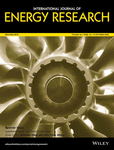Machine learning-based energy consumption clustering and forecasting for mixed-use buildings
Funding information: Engineering Research and Development for Technology Consortium Scholarship Program
Summary
Mixed-use buildings contribute to the sustainable development of cities by providing economic, environmental, and social benefits. Energy management of these buildings still remains a challenge due to their unpredictable energy consumption characteristics and the lack of design guidelines for energy efficiency and sustainability solutions. Energy consumption forecasting models have been crucial to the improvement of energy efficiency and sustainability of buildings but its application to mixed-use buildings are limited. Hence, this study aims to develop a prediction model to characterize and forecast the energy consumption of mixed-use buildings. Machine learning techniques are employed in the proposed prediction model which used k-means algorithm for clustering and support vector machines for forecasting. The prediction model was developed and demonstrated on simulated energy consumption of 30 mixed-use buildings from the open energy information database. The clustering results have found major differences in the consumption behavior of building clusters, especially on peaking characteristics. The differences were highlighted in terms of the domain knowledge on residential and commercial energy consumption behavior. The forecasting model results showed that the proposed integration of the clustering model was able to capture unique variations in the energy consumption of mixed-use buildings. This led to a 46% decrease in the mean bias error and a 10% decrease in the coefficient of variation root mean square error wherein both indicators are commonly used in building energy modeling standards.




